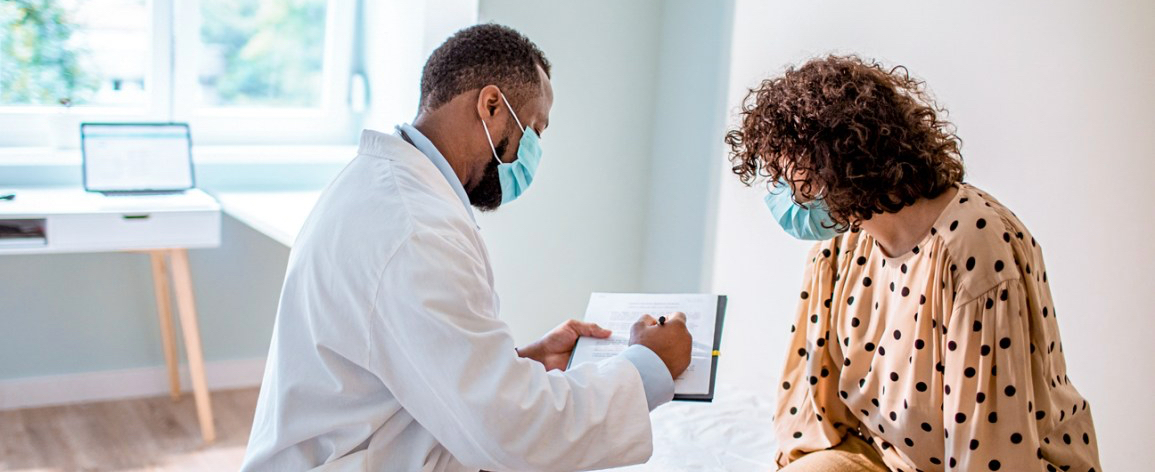“Shift into self-compassion. You’re not unproductive. You’re living through a pandemic. #breathe” — Dr. Thema, Feb. 10 on Twitter @drthema.
Debra? We’re ready for you now. How are you today?
Oh, you know.
OK, we’re right in this room here. Let’s just get you on the scale and weigh your grief burdens, OK? Mm-hmm. Looks like you’re heavier than last time, but you’re doing much better than most people right now.
Yes, well, I have a lot to be grateful for.
Very good. Now hop up here and let’s take your anxiety pressure. Go ahead and think about all the things that worry you. Thaaaat’s right. I’ll give you a minute.
Do you mean personal worries about my loved ones and my job, or, like, public worries about the future of democracy and climate change?
Personal and public worries have similar effects on your anxiety pressure. Uh-hunh. Quite high, I’m afraid, although we’ve adjusted the “normal” chart these days, so you’re still in the normal range. Now, just remove all your defense mechanisms and the doctor will be with you in a minute, OK?
Shall I sit here and look at the scary charts and photos on the wall while I wait?
Yes, they’re designed to give you even more things to worry about.
[minutes go by]
All right! How are we today?
Fine. I’m fine, doc.
Are you? You look a little rough. Let’s listen to your spiritual life, OK? This is going to feel a little cold. Deep breath. Another one. Aaaaand another one. I’m hearing some crackles and congestion. Have you been experiencing spiritual problems?
Well, I haven’t been to actual in-person church in a long time. And, well, to be honest, my prayer life has kind of …. tapered off, I guess. And I miss singing.
Hm-hmmm. I’m seeing a lot of that right now. [*jots a note*] “Diminished spiritual capacity.” Let’s test your reflexes, shall we? Oh. Oh my. Are you feeling numbness or tingling in your extremities?
Um. I guess I’m kind of feeling numbness everywhere. Not much tingling.
I see. And how long have you noticed this?
For a year? Maybe… maybe four or five years? The numbness comes and goes. Lately it’s been a little worse, I guess. I think I’m just tired.
Sure. Do you get enough rest? What do you do to rest?
Well, I’m watching through Downton Abbey again. I do crossword puzzles. Lately I’ve discovered TikTok. That one is kind of addicting.
I see. Well, as numbing behaviors go, it could be a lot worse. How many hours a day would you say you engage in numbing behaviors?
Um. Two to three? Is that a lot?
As I say, I’ve seen worse. Would you say these behaviors are interfering with your daily functioning at work or home?
I don’t think so. Not really.
All right, well, let me look at your chart here. Uh-hunh. I notice that the productivity levels in your blood are quite high. Dangerously high, actually. This might explain the feelings of numbness.
Oh. Well. I think high productivity runs in my family? Besides, I gotta produce, right, heh heh? Everyone does!
Yes, well, there are limits, and we’ll have to talk about changing some habits. Let’s palpate your gut a little. Lay back. Good. You’re wincing. Are you experiencing any other kinds of pain?
No. Not really.
OK. [*mumbles while jotting down a note*] “Refuses to acknowledge pain.” Debra, it sounds as if you have a classic case of low-grade trauma-coping.
Trauma?? That sounds serious!
It can be. In your case, it’s pretty mild. There’s a great deal of trauma in the atmosphere right now, and you’re being affected by it. Trauma coping can move us in either of two directions: toward hyper-arousal or hypo-arousal. Hyper-arousal means you become aggressive, unpredictable, and destructive to self or others. Hypo-arousal means you shut down, go numb, turn inward. Some people vacillate wildly between these extremes.
Yikes.
Yes. It sounds like you tend toward hypo-arousal. What we want to do is recognize those symptoms and treat them in order to move you back, as much as possible, into the “comfort zone” where you feel calm and able to act and make decisions.
That sounds… good. What do I do? I could just try harder. I’m usually good at that.
Trying too hard risks raising your productivity levels even higher. I’m going to recommend some classic home remedies, OK?
OK. Like what?
Blankets?
Yes, peer-reviewed studies at major universities have shown that cozy blankies tend to work very well.
I’ve already got cozy blankies! At my desk. On the sofa. I even have a heated one.
Excellent. Keep that up. Simple, repetitive tasks is another one.
Hmm. I guess dishes and laundry are therapeutic? Should I take up crocheting?
Only if you can figure out what to do with all the afghans and mittens you produce. Your crossword puzzles are good, though. And don’t forget exercise.
Sigh. Yeah, yeah.
Also, hot chocolate and a crunchy biscuit.
How about tea instead?
That’ll do nicely. It’s good that you’re staying away from major addictions, guns, conspiracy theories, and political violence. Those just make hyperarousal worse.
Of course. [*shudder*]
And remember: this is not a quick fix. It’s going to be a long time yet before we can treat your condition with the really effective methods, like in-person church-going and music-making and meal-sharing. In fact, for many people, trauma-coping has become a permanent chronic condition and they will never entirely recover. People who had the condition before are now finding their symptoms have gotten that much worse. It’s kind of a… well, a pandemic.
I see. Well, thanks, doc. Just out of curiosity, how do you treat hyper-arousal?
Well, among other things, deep breathing, chewy foods, exercise, and of course: blankets.
Note: This post is an act of shameless, blatant theft from the brilliant Gabe Gunnink.





